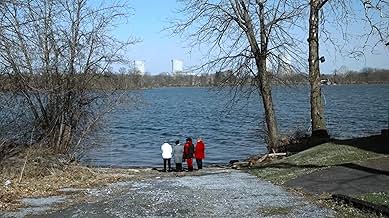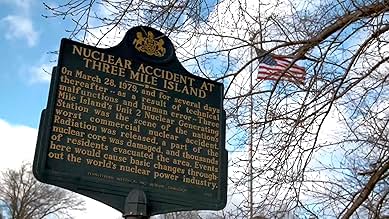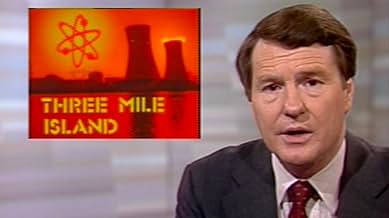A feminist feature documentary about the 1979 Three Mile Island meltdown with never-before-told stories.A feminist feature documentary about the 1979 Three Mile Island meltdown with never-before-told stories.A feminist feature documentary about the 1979 Three Mile Island meltdown with never-before-told stories.
Joanne Doroshow
- Self - Represented Three Mile Island Alert Community Group
- (as Joanne Doroshow - Attorney)
Lynne Bernabei
- Self - Represented Three Mile Island Alert Community Group
- (as Lynne Bernabei - Attorney)
Jack Herbein
- Self - Vice President, Metropolitan Edison
- (archive footage)
- (as John Herbein)
- Director
- Writer
- All cast & crew
- Production, box office & more at IMDbPro
Featured reviews
Fascinating documentary on the women--local mothers, a waitress, a young lawyer--who fought efforts to downplay the accident by the nuclear industry and the federal Nuclear Regulatory Commission.
Their efforts led to hearings that cast doubt on officials' statements--for example, it turns out no one knows how much radiation was released because the sensors atop the towers were pushed past their maximum limits--and led to the federal prosecution and conviction of the utility company for falsifying records.
The film notes that more such doubt is cast by recent peer-reviewed, journal-published research. One paper shows that cancer rates are higher where the radioactive plume fell. Another paper explains the disparity between official expectations of illness and the observed higher rate--in part because the expectations accounted for short-lasting gamma radiation and not fat-soluble beta radiation.
The film notes that the efforts of these women did not stop the reopening of TMI after six years--but did help scuttle more than 100 planned nuclear plants.
Well worth seeing.
Their efforts led to hearings that cast doubt on officials' statements--for example, it turns out no one knows how much radiation was released because the sensors atop the towers were pushed past their maximum limits--and led to the federal prosecution and conviction of the utility company for falsifying records.
The film notes that more such doubt is cast by recent peer-reviewed, journal-published research. One paper shows that cancer rates are higher where the radioactive plume fell. Another paper explains the disparity between official expectations of illness and the observed higher rate--in part because the expectations accounted for short-lasting gamma radiation and not fat-soluble beta radiation.
The film notes that the efforts of these women did not stop the reopening of TMI after six years--but did help scuttle more than 100 planned nuclear plants.
Well worth seeing.
This movie tells the story of the women who fought back against the official response to the disaster at Three Mile Island. Focusing primarily on the efforts of four women who led the local community's protest, and a fresh-out-of-law-school lawyer who took a lawsuit all the way to the Supreme Court, it is both an indictment of the nuclear industry and its regulators and a personal story about real people.
I saw this at a local film festival and was expecting an amateur production or agitprop. But it's anything but. Rather, it is expertly filmed and carefully edited, splicing slice-of-life portraits, interviews with experts, and historical footage. It makes a compelling case that not only was the leak at Three Mile Island a cover-up that led to drastic spikes in cancer rates upwind of the site, but also that the official response to the leak was a travesty of justice against, and a personal tragedy for, the victims of the accident.
But what makes this film so compelling is how human it is. I found myself pulled into the lives of the people in this community, saddened at their tragedy, rooting for them as underdogs, and uplifted by their dogged spirit. The audience around me was rapt, sometimes in tears, and standing in applause at the end.
I saw this at a local film festival and was expecting an amateur production or agitprop. But it's anything but. Rather, it is expertly filmed and carefully edited, splicing slice-of-life portraits, interviews with experts, and historical footage. It makes a compelling case that not only was the leak at Three Mile Island a cover-up that led to drastic spikes in cancer rates upwind of the site, but also that the official response to the leak was a travesty of justice against, and a personal tragedy for, the victims of the accident.
But what makes this film so compelling is how human it is. I found myself pulled into the lives of the people in this community, saddened at their tragedy, rooting for them as underdogs, and uplifted by their dogged spirit. The audience around me was rapt, sometimes in tears, and standing in applause at the end.
This film fills a critical void in the coverage of Three Mile Island. While it is tempting to let TMI fade into the past, the impact it had on nearby residents continues to this day. Hutner has done a masterful job of telling the stories of these women and integrating it with the science that suggests that harms to health might have been greater than understood at the time. That combination, the stories of the victims together with cutting edge science is not so easy to get right and she has done it masterfully. While current research continues and the full answers are not yet known, it is appropriate to take stock and consider the risks of nulcear power even as some are promoting it as an alternative to fossil fuel combustion.
This film has been shown at two festivals so far, one in NYC, one in DC. I attended both, and in both it received standing ovations from the audience. Meticulous in reporting the science and the facts, it does an even better job capturing the emotional tension of four mothers taking on the federal government and corrupt corporations that were pushing the fake narrative that there was "nothing to see here" at Three Mile Island.
Calling the corporation "corrupt" is no exagerration, since court cases the women brought proved a pattern of falsifying documents, cheating on licensing exams, and lying to regulators.
Those government regulators also continue to lie to the public about the radiation released at TMI and the health effects on the downwinders, again as documented in the movie.
Anyone who is thinking about drinking the radioactive kool-aid the Biden administration is offering in the form of tax payer support for the nuclear industry needs to watch this movie and learn about its decades of lying and cover ups and cheer at the bravery of the women who exposed it.
Calling the corporation "corrupt" is no exagerration, since court cases the women brought proved a pattern of falsifying documents, cheating on licensing exams, and lying to regulators.
Those government regulators also continue to lie to the public about the radiation released at TMI and the health effects on the downwinders, again as documented in the movie.
Anyone who is thinking about drinking the radioactive kool-aid the Biden administration is offering in the form of tax payer support for the nuclear industry needs to watch this movie and learn about its decades of lying and cover ups and cheer at the bravery of the women who exposed it.
I watched this at an environmental film fest. Knowing very little about Three Mile Island, I was disturbed to learn the extent of the failings of the local and federal government and big business. The residents of the community and our entire nation were misled. Telling this story through the eyes and of mothers in the community was effective and sincere. The women brought tears to my eyes but also laughs. You see their stories play out over decades and they are truly heroes and dedicated advocates. There are fascinating science and health concerns raised (I won't spoil them here), but you will walk away from the film with a healthy skepticism of nuclear energy and the protections in place in the United States of America.
Details
- Runtime
- 1h 16m(76 min)
- Color
Contribute to this page
Suggest an edit or add missing content




































